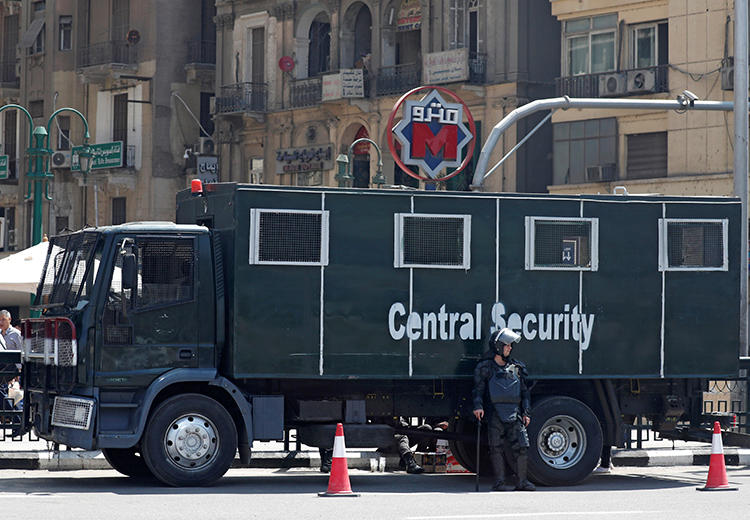Washington, D.C., September 10, 2019 — Egyptian authorities must immediately release Omar Shandi and stop harassing the families of critical journalists, the Committee to Protect Journalists said today.
Early this morning, in Giza, security forces raided the home of Magdi Shandi, editor-in-chief of the independent newspaper al-Mashhad, and arrested his son Omar, a college student, according to social media posts by Magdi Shandi, news reports, and a report by local press freedom group Arabic Network for Human Rights Information (ANHRI).
Shandi was not home at the time of the raid, and security forces told his family that they were detaining his son at a Giza police station until Shandi turned himself in, according to a post by the journalist on his personal Facebook page and those news reports. When Shandi went to the station, he was told that his son had been moved to the National Security Agency office in Sheikh Zayed, about 20 miles east of Giza, according to the ANHRI report.
This evening, Shandi posted on Facebook that he did not turn himself in because he has not been informed of any open case against him. No charges have been announced against Shandi or his son, according to those news reports.
The raid followed with the publication of several articles critical of the army and government officials in today’s issue of al-Mashhad.
“Egyptian authorities must release Omar Shandi and stop their harassment of al-Mashhad and its editor, Magdi Shandi,” said CPJ’s Middle East and North Africa program coordinator, Sherif Mansour. “Critically covering issues of public interest is not a crime, and targeting a journalist’s family is completely unacceptable.”
One of the articles published today included an interview with former presidential candidate and opposition leader Hamdeen Sabahi, in which he called for prosecuting government and security officials for allegedly levying false charges against candidates planning to run in next year’s parliamentary elections. Another referenced an Egyptian actor and construction contractor who leveled corruption allegations against President Abdel Fattah al-Sisi and the military; a third article described “disasters” relating to alleged government mismanagement of antiquities.
CPJ emailed the office of the Egyptian prosecutor general, which oversees the security forces, for comment but did not immediately receive a response.
In March, Egypt’s Supreme Council for Media Regulation used a new law to block al-Mashhad’s website in the run-up to a national referendum to expand the president’s powers, and fined the outlet 50,000 Egyptian pounds (U$2,909) for alleging corruption and vote-buying in the referendum, according to CPJ research. The website remains blocked, according to two local journalists who spoke to CPJ.
